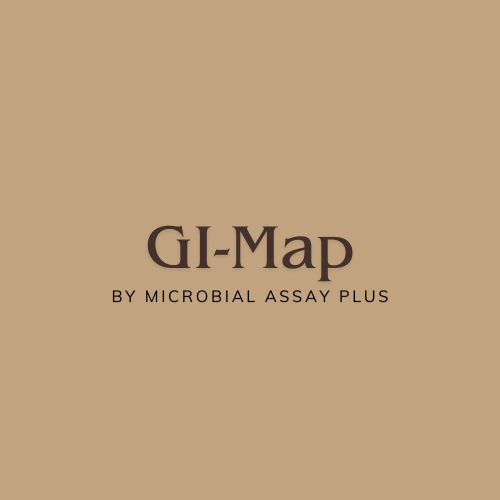GI-Map
The Gastrointestinal Microbial Assay Plus (GI-MAP™) was designed to assess a patient’s microbiome from a single stool sample, with particular attention to microbes that may be disturbing normal microbial balance and may contribute to perturbations in the gastrointestinal (GI) microbiota or illness. The panel is a comprehensive collection of microbial targets as well as immune and digestive markers. It screens for pathogenic bacteria, commensal bacteria, opportunistic pathogens, fungi, viruses, and parasites. It primarily uses automated DNA analysis to give integrative and functional medicine practitioners a better view into the gastrointestinal microbiome.
The Gastrointestinal Microbial Assay Plus (GI-MAP™) was designed to assess a patient’s microbiome from a single stool sample, with particular attention to microbes that may be disturbing normal microbial balance and may contribute to perturbations in the gastrointestinal (GI) microbiota or illness. The panel is a comprehensive collection of microbial targets as well as immune and digestive markers. It screens for pathogenic bacteria, commensal bacteria, opportunistic pathogens, fungi, viruses, and parasites. It primarily uses automated DNA analysis to give integrative and functional medicine practitioners a better view into the gastrointestinal microbiome.
The Gastrointestinal Microbial Assay Plus (GI-MAP™) was designed to assess a patient’s microbiome from a single stool sample, with particular attention to microbes that may be disturbing normal microbial balance and may contribute to perturbations in the gastrointestinal (GI) microbiota or illness. The panel is a comprehensive collection of microbial targets as well as immune and digestive markers. It screens for pathogenic bacteria, commensal bacteria, opportunistic pathogens, fungi, viruses, and parasites. It primarily uses automated DNA analysis to give integrative and functional medicine practitioners a better view into the gastrointestinal microbiome.
The GI-MAP measures pathogenic organisms that can cause hospital-acquired infections (HAI) such as C. difficile or norovirus, foodborne illness such as E.coli or Salmonella, and common causes of diarrhea such as Campylobacter or Shigella. This panel measures viral causes of gastroenteritis, unavailable by other common stool tests. It measures parasites such as Cryptosporidium, Giardia, and Entamoeba histolytica. The GI-MAP analyzes Helicobacter pylori and its virulence factors. It can detectopportunistic pathogens such as Pseudomonas aeruginosa, Klebsiella pneumoniae, and Proteus mirabilus, associated with autoimmune molecular mimicry. It includes a panel of single-celled, amoebic parasites such as Blastocystis hominis, Dientamoeba fragilis, and Entamoeba coli. Worms such as Necatur americanus and Trichuris trichuria are reported on the GI-MAP as well as cytomegalovirus and Epstein-Barr virus. Fungal organisms include Candida, Geotrichum, Microsporidia and more. Finally, the GI-MAP measures standard markers of immunity, inflammation and digestion including calprotectin, secretory immunoglobulin A (SIgA), anti-gliadin antibody, and pancreatic elastase-1.

